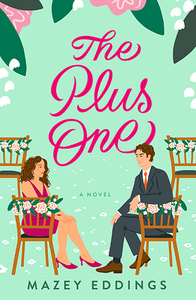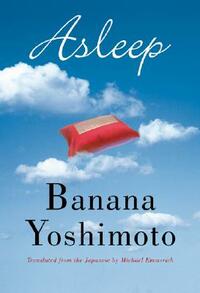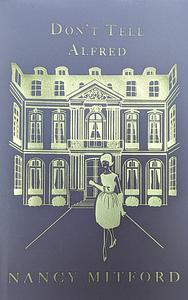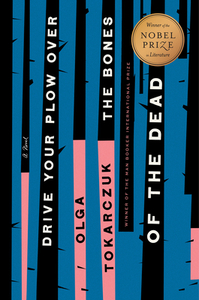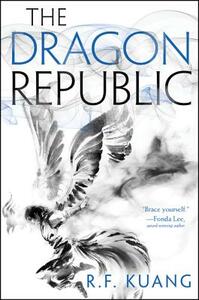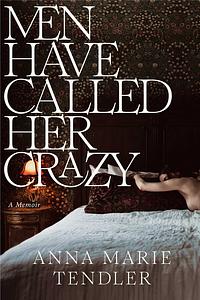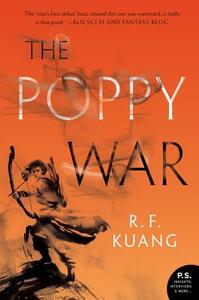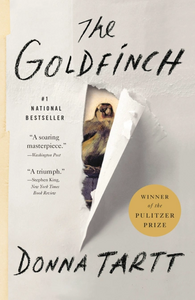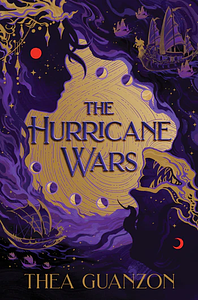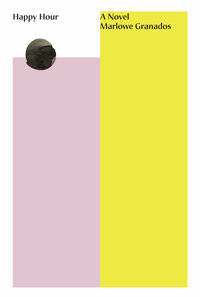You need to sign in or sign up before continuing.
Take a photo of a barcode or cover
documentno_is's Reviews (1.28k)
dark
tense
fast-paced
Plot or Character Driven:
Character
Strong character development:
Yes
Loveable characters:
Yes
Diverse cast of characters:
Complicated
Flaws of characters a main focus:
Yes
Was looking for a palette cleaner after being deep in literature the past couple weeks and this one didn’t disappoint. The lead couple had great chemistry and the world was fresh and dynamic- my only complaint is some of the dialogue during spicy scenes was cringe but it wasn’t too hard to look past it. I like the exploration of PTSD in medical settings.
challenging
emotional
mysterious
reflective
sad
tense
fast-paced
Plot or Character Driven:
A mix
Strong character development:
Yes
Loveable characters:
Complicated
Diverse cast of characters:
No
Flaws of characters a main focus:
N/A
An easily consumable set of short stories interwoven by the common motif of sleeping. I found the first and last story most memorable. The prose was a lot simpler than I expected. The stories were interesting and heavily steeped in characters. I appreciated the themes of grief and loneliness and how the stories approached wandering after loss. There is a certain uniqueness to some of their actions that was intriguing. This compilation was an gratifying, if not a little forgettable foray into Banana Yoshimoto's work.
funny
lighthearted
fast-paced
Plot or Character Driven:
A mix
Strong character development:
No
Loveable characters:
No
Diverse cast of characters:
No
Flaws of characters a main focus:
Complicated
This was an interesting one!
I would start with the positive, this novel has an incredible sense of voice. The author really writes our protagonist as the funniest person in the room and that comes across both in the other character's reactions to her but in the word choices as well. Filling her prose with idiom and humor, Mittford has an incredible sense of what people at the time found funny.
The characters are a bit of a mixed bag, some are written complexly and with detail and some just exist to keep the story moving. There is a good deal of social satire in the novel so many of the characters are stand ins for what english people in their 60's thought about one another. Mittford clearly has a good sense of British society and likely took on much of what she knew people found funny.
On the negative side, as with much of British literature this novel is abhorrently racist in ways that are difficult for a modern audience to stomach. They show the state of Britain of the time but unfortunately illuminate much of what is still plaguing society today. I don't necessarily feel Mitford was trying to present this racism as a negative or positive commentary and that's where my problems with it were.
Lastly, it really did sort of fall apart in the middle for a second. Too many characters introduced without enough characterization leaves the audience feeling floundered. Her initially charismatic voice was starting to get lost in the grating minutia of Fanny's french life. Mitford's novel wasn't necessarily a complete disappointment but I'm unsure if the impact of the positives outweighed the heavy pull of the negatives.
I would start with the positive, this novel has an incredible sense of voice. The author really writes our protagonist as the funniest person in the room and that comes across both in the other character's reactions to her but in the word choices as well. Filling her prose with idiom and humor, Mittford has an incredible sense of what people at the time found funny.
The characters are a bit of a mixed bag, some are written complexly and with detail and some just exist to keep the story moving. There is a good deal of social satire in the novel so many of the characters are stand ins for what english people in their 60's thought about one another. Mittford clearly has a good sense of British society and likely took on much of what she knew people found funny.
On the negative side, as with much of British literature this novel is abhorrently racist in ways that are difficult for a modern audience to stomach. They show the state of Britain of the time but unfortunately illuminate much of what is still plaguing society today. I don't necessarily feel Mitford was trying to present this racism as a negative or positive commentary and that's where my problems with it were.
Lastly, it really did sort of fall apart in the middle for a second. Too many characters introduced without enough characterization leaves the audience feeling floundered. Her initially charismatic voice was starting to get lost in the grating minutia of Fanny's french life. Mitford's novel wasn't necessarily a complete disappointment but I'm unsure if the impact of the positives outweighed the heavy pull of the negatives.
challenging
dark
funny
mysterious
sad
tense
fast-paced
Plot or Character Driven:
A mix
Strong character development:
Complicated
Loveable characters:
Yes
Diverse cast of characters:
No
Flaws of characters a main focus:
Yes
This is book is interesting in that while it initially presents itself as neo-noir crime fiction it exists in this genre so intangibly that it hardly describes it at all. This book fits more neatly into a place of ideological/political satire. In fact, I found some aspects of disbelief hard to overcome in regard to its treatment as a mystery and reading it this way was ineffective to me. Reading this book in the cultural moment of a U.S. election that mimics manly of the same ideals as the Polish (L&J) right wing populist party. Driving the plow over the bones of the dead is an apt description, to borrow from Tokarczuk borrowing from Blake.
Some analysis on various devices Tocarcuk uses to convey her general ideological belief in the danger/evil of casting out the sick and the "useless" in favor of strength and rigid Christian value.
Some analysis on various devices Tocarcuk uses to convey her general ideological belief in the danger/evil of casting out the sick and the "useless" in favor of strength and rigid Christian value.
Eastern Europe
It’s fun to notice the little Easter eggs from a book set in my culture, the obsession with zodiac, the valerian root, the shots of vodka and the way the houses are arranged sound so quintessentially Eastern European to me. I also like how Tocarcuk uses the Czech Republic as this mystical place with indeterminably fair values (in comparison to the cruel and lawless Poland.) In many ways the setting is a primary driver of tone in this novel. The icy and hard exterior is mirrored in the life people live but also in the grim outlooks they seem to have about each other and their surroundings. Tension and coolness go hand and hand- there is a frigid anxiety of something to pass.
Horoscopes
The main character has a special interest in people’s natal charts and uses this information to base what kind of people they are and how they will at. The element of mystery to this story is driven by some supernatural or preternatural element to the horoscope trope used in this novel. The horoscope, or set of universal laws outside of manmade Christian law, is also used as a vehicle to show society's mistreatment of the mystical/paganism associated with women, witches, & femininity in contrast to the rigid male "natural order." She is so well versed and knowledgable in astrology she can calculate horoscopes based on ephemerides and uses them almost as a crutch when it comes to indetermination. The sky is the template that sets the patterns in our lives. The author is using this aspect of her to add a sense of unreliability and superstition to our narrator, especially with the passage about her being obfuscated and unskilled despite all her astrological knowledge. She has no real ability to tell the future with these tools and admits to that.
Aging/Womanhood
The author uses the woman’s age as a continual way of viewing her through the lens of society, people are inpatient and abrupt with he because they view her as no longer useful. The society is clearly rigid in its sexism and this is tied to the Catholicism within Poland that is both literal Christianity tied to the church but also the greater cultural Catholicism that imprisons its people in this rigid system.
The Ailments
The author multiple times mentions a mysterious illness for which she takes medications, the case remains to be seen whether this is connected to her investment into the supernatural or if she is suffering a psychological or physical ailment. The ailments further add to the unreliable narrator trope but also to the general health and society eugenics that is put forth by the right wing nationalism in Poland.
Little Girls
The narrator shares a closeness for animals, and reserves more empathy and sympathy and humanity in her descriptions of the deer and the dogs than she does for the humans in her life such as Oddball or Bigfoot. Even the people she decidedly likes she feels unnatural silence with while the animals can understand her easily. The central story revolves around her disappeared dogs and the communities complicity in the violence that befell them.
Names
The author has a proclivity of being certain that a person’s name matches their personhood so everyone in the novel is referred to by a nickname rather than their government name except for herself. The narrator feels fury at being misnames because it is evidence she is not being listened to or respected. Names are a huge component of importance in Eastern European society and are said to give meaning to who you are- so the narrator takes it upon herself to rename those whose names are unsuitable. I like how the narrator's nicknames for characters she felt more relational to contrast the rigid titles given to her oppressive foes like "The Commandant."
Style:
Capitalization: The author uses sporadic capitalization to draw attention to certain words that are being used in greater importance, and this also stylistic and tonally fits the idea that the narrator has a specific relationship with names. The way she uses language in this novel is so precise, both in the works encased in this work that the characters are translating which further adds to the reader's interpretation of the work but also the translator's interpretation of Tocarcuk.
Death
Death surrounds the narrative of DYPTBOD, and we start with the literal death of a character in the beginning of this novel. We then learn of the sordid reputation he had for killing animals and are also introduced to death through the lens of the horoscope when the narrator mentions she knows the date of her death and that sets her free, is this foreshadowing to the things she is capable or intent on doing? By the time the commandant ends up dead I’ve begun to heavily suspect our narrator, she’s prone to violence and has staunch ideas about right and wrong ( both characters on her shit list) and she believes that animals are murdering in revenge while also conjuring and potentially convening with the dead.
Politics
I wonder if in some ways Tarczuk is mocking liberalism with this idea of a check eden where before the fall there were dreams but now there his only oppressive darkness. All hope is lost and dreams are dead. She certainly champions people who are sick, disabled, and convening with nature in poetic ways; showing the police and society as brutal and ugly as they drive past and smash the bones of those who cannot fight like nature animals elderly and women. “Sometimes I think only the sick are truly healthy” and the way that being looked past by society gives you lens into its interworking and how pervasive these ideologies are. She further espouses this idea when she talks of her dislike of cold irony, how people’s distance from the realities of the world and its tragedies allow them to take a lofty removed ambivalence is when this behavior incites her.
" Kill not the moth or butterfly for the final judgment is nigh "
Conclusion
This novel was so brilliantly and beautifully executed but I admit I was occasionally lost in its metaphor,because as a straightforward mystery noir the premise doesn't work. I think the element of mystery was occasionally lacking in service of the allegory and I'm fine with this but was left a bit unsatisfied by how easily I "figured it all out."
Conclusion
This novel was so brilliantly and beautifully executed but I admit I was occasionally lost in its metaphor,
adventurous
challenging
dark
sad
tense
fast-paced
Plot or Character Driven:
Plot
Strong character development:
Yes
Loveable characters:
Yes
Diverse cast of characters:
Yes
Flaws of characters a main focus:
Yes
Middle books in a series are always so awkward to review but I'll do my best to summarize some things i liked about this novel and other things I wasn't so crazy about
Liked:
Rin & Nezha: great character dynamics between these two, always on opposite sides so we knew it couldn't last but I love a toxic love story
The Stakes: I feel like by the end of the novel the stakes are much higher and clearer than ever before
The Setup: I see how much of this novel is necessary to build Rin up for the events of book 3
Disliked:
Chess Pieces: So much of this novel is moving characters around from point A & B so they can eventually end up in C and I feel like much of it could have been cut, even if I'm glad for the extra time to develop R & N's dynamic with each other
Battle: WAY too granular on the battle specifics, I prefer a fantasy novel that is going to enmesh me in a story not give me a play by play of how a battle goes down. This is largely my own personal preferences I much prefer three people talking in a room media
Conclusion:
The Dragon Republic was still an effective political allegory with compelling characters and an interesting plot. It lost some of the magic of the start to the series and had some crucial flaws that kept it out of being a real favorite of mine.
Liked:
Rin & Nezha: great character dynamics between these two, always on opposite sides so we knew it couldn't last but I love a toxic love story
The Stakes: I feel like by the end of the novel the stakes are much higher and clearer than ever before
The Setup: I see how much of this novel is necessary to build Rin up for the events of book 3
Disliked:
Chess Pieces: So much of this novel is moving characters around from point A & B so they can eventually end up in C and I feel like much of it could have been cut, even if I'm glad for the extra time to develop R & N's dynamic with each other
Battle: WAY too granular on the battle specifics, I prefer a fantasy novel that is going to enmesh me in a story not give me a play by play of how a battle goes down. This is largely my own personal preferences I much prefer three people talking in a room media
Conclusion:
The Dragon Republic was still an effective political allegory with compelling characters and an interesting plot. It lost some of the magic of the start to the series and had some crucial flaws that kept it out of being a real favorite of mine.
challenging
tense
fast-paced
I think as long as anyone enters into this book with the perspective that victims are imperfect, and there is worth talking about one's struggles before they are "healed" then its an interesting enough edition to the zeitgeist of mental illness literature thats been around for decades. Girl Interrupted, Family Stone, Maniac, cut, impulse/crank/etc, I mean, I at least grew up reading these kind of triggering books of dramatic white middle class ennui; when Tendler says problematic shit I'm like yeah, she's in therapy for that? I think this might be a case where somebody gets cheated on and then their public persona becomes exalted to the point of no return, like the only direction to go is down? I was also at The Other Art Fair when Tendler was there and her work was on the better side of a very mediocre overly expensive art fair. This book was not groundbreaking, it was not life changing, it was just one person's struggles and I think theres value in that. Also maybe since my expectations were on the ground, the writing was better than I expected as well? I empathize with a lot of her experiences, and always advocate for de-centering men from your life.
adventurous
challenging
dark
sad
fast-paced
Plot or Character Driven:
A mix
Strong character development:
Yes
Loveable characters:
Yes
Diverse cast of characters:
Yes
Flaws of characters a main focus:
Yes
R.F. Kuang’s debut noble is a masterful heavy hitter- and immediately catapulted me into the world of Rin and her fantastic character story. Some of the best fantasy writing I’ve read in years- The Poppy War’s plot moves effortlessly and quickly and complex moral questions lay at every turn.
Rin is obviously supposed to be an anti-hero (and an allegory for Mao Ze Dong?) and we see her embark on a complex journey where we, as the reader, have opportunities to agree or disagree with her choices. She is dynamic, she is interesting, she is imperfect and yet incredibly strong and resilient; it is impossible to stop craving to see what happens next.
I won’t act as if I’m an expert on Chinese history but I think it’s safe to say Kuang took some liberties- Speerly seems to be somewhat parallel to Taiwan but the introduction of a magic system complicates the allegory. Either way, it gave some harrowing historical impact to the tragedies showcased in the novel and really successfully communicated the endless horrors of war. I love how Kuang conveys the dangers of seeking power and how it corrupts ultimately, this interwoven with the complexity of the horrors that Rin faces is impossible to turn away from.
Based on what I’ve read so far I’m excited to continue to read this series and see how the story transpires. I hope that in the next books Kuang spends a little more time on the dynamics between characters because I do feel like we were really wrenched away occasionally in favor of moving the plot forward.
adventurous
challenging
dark
emotional
funny
inspiring
mysterious
reflective
sad
tense
fast-paced
Plot or Character Driven:
A mix
Strong character development:
Yes
Loveable characters:
Yes
Diverse cast of characters:
No
Flaws of characters a main focus:
Yes
The divinity of object
The beauty in a painting is personal- it whispers from across the room hey you! Yeah, you. The keeping for and caring for object, builds its divinity and meaning. Tartt really showing her catholicism here, and I did enjoy the thematic significance if wish she hadn’t been so didactic about it in the end.
Predetermination.
Has god already written our sins or are they ours to make? Can we achieve salvation even through our wrongs. Why must we suffer and what is the meaning of”of all this” asks Theo time and time again.
Trauma
Coping and healing after immense tragedy, the damage becomes written in your bones. A thematic footnote in this piece but Tartt does spend most of the novel showcasing it.
Love
Is love our salvation? I think for Theo it was in some ways, even if he didn’t get a clear cut finale in this regard. I like how it was left open in form- what is the purpose of love in terms of the humans in our life? Boris was someone he loved, and now still who carries on in some toxic importance in his life. His different kind of love for his parents, and then his later guardians of Hobie and Mrs. Barbour. Then of course Pippa and Kitsey- Pippa who has his heart but cannot even save herself and Kitsey who is so stable and assured but whose true love belongs to his old friend. Duality in tragedy once again, but it builds who Theo is and builds the reader’s sympathy for him.
Inaction
Theo is a character who things happen to, who seems in most cases an unwilling participant to the story of his own life. I’ve read other novels where inaction becomes this great character flaw but in many ways Theo’s inaction saves him from darker paths. His inaction is not his Achilles heal nor is it some exhaled component of his self its just- characterization.
Conclusion
Tartt has built an incredible summation of the life of a person- in all its messy complications. Every character in this novel is dynamic and the plot structure is masterful. This novel really solidified Tartt’s role as my favorite living author. I think overall The Secret History spoke to me a little more- it had a certain literary quality that this one never quite captures in favor of a more typical “action” style mystery. Still- an incredible read and one I’ll be thinking of for days.
adventurous
dark
mysterious
reflective
tense
fast-paced
Plot or Character Driven:
A mix
Strong character development:
Complicated
Loveable characters:
Complicated
Diverse cast of characters:
Complicated
Flaws of characters a main focus:
Yes
This book had a rough start, but once I caught up to the lore I really enjoyed it. It’s fun to read a book where the main characters are actually enemies with complex back stories.
I will say- disappointing ending, a book should end as if there could never be another. Even if there are sequels I feel there should be some semblance of closure and more so than a cliff hanger this book ended with a half thought
adventurous
funny
lighthearted
reflective
fast-paced
Plot or Character Driven:
Plot
Strong character development:
No
Loveable characters:
Complicated
Diverse cast of characters:
Yes
Flaws of characters a main focus:
Complicated
Happy Hour is essentially a slightly intellectualized version of a New York City ensemble cast alternative sitcom. Our main characters, Isa & Gala are trying to stretch a few dollars into a million adventures, sometimes at great risk to life, body & property. They are very young, gen-z party girl demographic but the novel is set around 10 years in the past so much of the goings on are dated both aesthetically and literally. They're adventures somewhat realistically center around men, grifter antics, drinking & reconning with sadness (grief) and growing up.
I did find our cast charming, if often insufferable. I think we are not entirely supposed to relate to Isa or Gala but have the latent frustration of a parent or older sibling just hoping they make it out okay. The two girls are smart when they want to be, but often juvenile when concerning matters of the heart. I think the novel has a very realistic portrayel about 20's adventures in NYC. If you can move past how vapid and insipid the novel is, and settle in for the ride, I think Happy Hour sums um to a fun read. I've certainly seen authors do the same exact type of bit with much less tact and personality.
Happy hour is for fans of Girls, Sex and the City, Broad City, & Gossip Girl.
I did find our cast charming, if often insufferable. I think we are not entirely supposed to relate to Isa or Gala but have the latent frustration of a parent or older sibling just hoping they make it out okay. The two girls are smart when they want to be, but often juvenile when concerning matters of the heart. I think the novel has a very realistic portrayel about 20's adventures in NYC. If you can move past how vapid and insipid the novel is, and settle in for the ride, I think Happy Hour sums um to a fun read. I've certainly seen authors do the same exact type of bit with much less tact and personality.
Happy hour is for fans of Girls, Sex and the City, Broad City, & Gossip Girl.
